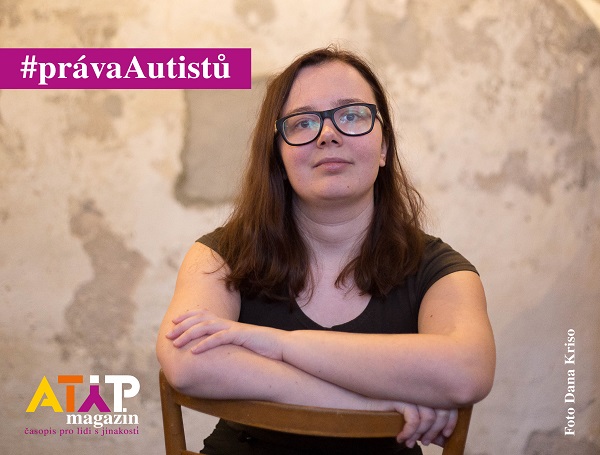The more people know about autism, the more it is discussed publicly, leading to more talks on this topic. However, this attracts autists’ reactions to these public discussions, mainly press conferences, discussion panels, large conferences, and so forth. The aim of this article is to present recommendations for the greatest possible inclusion so that everyone is satisfied, if possible. More and more people on the spectrum are interested in talking about their rights. And they don’t like that conferences still mostly do not feature them, and experts, service providers, and parents speak for them. The month of April is full of events about autism, and everyone turns on blue lights, but if you look at the programs, autism lacks autists. Can you imagine that no person with paraplegia would take part at a paraplegic conference? Would only parents of schizophrenic people talk at a symposium on schizophrenia or other mental illness? Therefore, this guide is still fictitious in the Czech Republic as conferences on autism still do not include autistic people.
1. At the events mentioned above on autism, the discussions should have at least a 50% autistic representation. It may seem like a high number, but the truth is that, for a long time, only allistic people who have no personal experience with autism have been talking about autism. For this reason, the public learns about autism in an unbalanced way. Currently, those with first-hand experience are also beginning to be invited. Therefore, it is desirable to have as many autistic people in the discussion as possible, and there should be a diverse range of life experiences among individual speakers. In addition, autism manifests itself in different ways, and it is better if listeners hear about autism from more demographic groups.
2. If autistic people do not want to speak on camera or attend a discussion or a press conference, it is better to change the discussion format. Some panels do not suit most autistic people, but if we do not try to make it easier for them, we will lose the actual autistic view that we need. Some people prefer a webinar; some people don’t like the date or the space.
3. It is also necessary to send the panelists the program or topics in advance, eventually questions, contact information, explanation of the discussion rules, and other essential things. Some autistic people experience anxiety when they face some uncertainty. It is important to dispel it. In addition, it avoids misunderstandings because we autistic people tend to take things literally.
4. What to do if a panelist is late on the way to the conference. This situation is not uncommon for autistic people; some move slower due to gross motor skills and are less able to navigate unfamiliar terrain. Some may get lost. In that case, it is essential to make sure that panelists are on their way and alright, and wait for them. The program can be set flexibly and also in a manner that participants do not get bored. For example, the discussion may begin without some panelists that will join later on. The late newcomer should get a brief on the whereabouts of the debate, whether something has changed, what topic is being discussed, and they should be introduced to the space and shown the seat alongside other participants.
5. All panelists should have a level playing field and, at the same time, basic necessities at their disposal: drinks or snacks, access to the toilet, “rest area” (to avoid sensory overload or to calm down when it occurs), frequent breaks or other things if the autistic person has another disability (sign language interpreter, barrier-free access, etc.).
6. The moderator should know the needs of autistic people and be able to moderate the discussion so that everyone gets to speak (especially those who have something to say about the topic or question and want to talk) and also those who cannot enter the conversation on their own, that is, take the floor. The moderator pays attention to the possible irony from the neurotypical participants, which people on the spectrum usually do not have to understand. At the same time, the moderator makes sure that there are no escalating conflicts. They can sometimes arise, but it is essential that they stay at a decent level and that there are no verbal or physical attacks because it is impossible to discuss such a situation.
7. The well-being of autistic people is essential. It is important to keep an eye on comfortability if, for example, autistic people (and, in fact, not only them) have to sit in an uncomfortable pose so that a data projector fits a bench. At times, organizers have to decide whose needs will get a preference because it is impossible to satisfy everyone’s needs, in which case priority should be given to those who need it the most.
8. It is essential to actively seek feedback from the conference participants, evaluate it, and consider what the participants (dis)liked. It is best to hand out questionnaires to incomers or send them a web form after the event. In order to obtain as honest responses as possible, it is better to keep the questionnaires anonymous. On the other hand, if you want to increase the return on questionnaires, it pays off to invest in prices for participants in the survey.
Inclusion is a process that we all learn, which is why we sometimes get it wrong. The Czech Republic is just starting with it. Nevertheless, I believe that there is a way to achieve the satisfaction of all those interested in the issue. I hope that the aforementioned points of the text will help us all.
________________________
text: Ivana Recmanová









